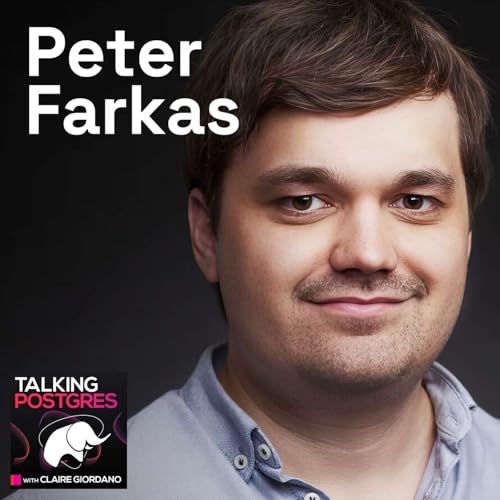
How I got started with FerretDB (& why we chose Postgres) with Peter Farkas
Failed to add items
Sorry, we are unable to add the item because your shopping cart is already at capacity.
Add to basket failed.
Please try again later
Add to Wish List failed.
Please try again later
Remove from Wish List failed.
Please try again later
Follow podcast failed
Unfollow podcast failed
-
Narrated by:
-
By:
About this listen
How does a trek to K2 base camp in the Himalayas spark the idea for a database company? In Episode 27 of Talking Postgres with Claire Giordano, guest Peter Farkas—CEO and co-founder of FerretDB—shares the origin story of this open source MongoDB alternative. (Spoiler: “Ferret” wasn’t the original name). We dig into why Postgres was the obvious choice, what “true open source” means to Peter, and how FerretDB is now powered by the open source DocumentDB extension from Microsoft. Plus, why Hungarian Trappist cheese might deserve a footnote in database history.
Links mentioned in this episode:
- GitHub: FerretDB/FerretDB repo
- Blog: FerretDB 2.0 GA: Open Source MongoDB alternative, ready for production
- ACM SIGMOD: The Design of Postgres, published 15 June 1986
- Postgres Weekly: Issue 591 featuring FerretDB
- GitHub: Microsoft/DocumentDB open source repo
- Conference talk: From MongoDB to Postgres: Building an Open Standard for Document Databases at POSETTE 2025
- OSI Blog: The SSL is Not an Open Source License
- RedMonk Blog: OSS: Two Steps Forward, One Step Back, by Stephen O’Grady
- Talking Postgres Ep18: How I got started as a developer (& in Postgres) with David Rowley
- OpenDocDB: initiative to define an open standard
- Wikipedia: K2 (yes, the mountain)
- Go Blog: The Go Gopher
- xkcd: webcomic 927 on Standards
- Wikipedia: Trappista cheese
- Cal invite: LIVE recording of Ep28 of Talking Postgres to happen on Wed Jun 18, 2025
No reviews yet
In the spirit of reconciliation, Audible acknowledges the Traditional Custodians of country throughout Australia and their connections to land, sea and community. We pay our respect to their elders past and present and extend that respect to all Aboriginal and Torres Strait Islander peoples today.



